FREE SPEECH GALLERY 2012
Death. Attacks. Arrests. Censorship. Curbs on online media.
This FREE SPEECH HUB photo feature looks back at 2012

NAVEEN SOORINJE
A handcuffed Naveen Soorinje, the Mangalore-based television journalist for Kasturi TV. Soorinje was arrested on November 7, 2012 after police charged him under various sections of the UAPA for reporting on the raid on a homestay party by a Hindu fundamentalist group in July. His bail application was rejected on December 26, after a Karnataka High Court judge maintained that his video recording of the raid indicated his complicity in the attack! Till date, Soorinje has spent 55 days in jail.
NANAO SINGH
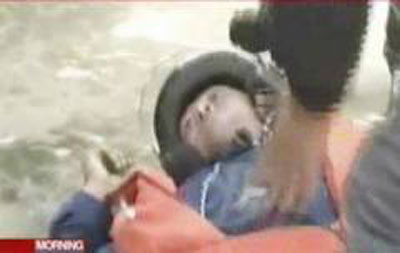
On December 23, 2012, Khwairakpam Dwijamani (ThangjamNanao Singh), a stringer for Prime Television and Doordarshan, took a police bullet on his chest, camera still in his hand, as he covered a violent agitation in Thangmeiband, Manipur, to protest the alleged molestation of a Manipur actress by a self-styled general of the overground NSCN (I-M), A Livingstone. Did police open fire even though they saw that he was a journalist with his camera? An inquiry has been ordered into his death but Livingstone is still at large.
TONGAM RINA
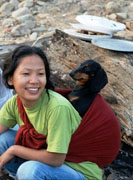 On July 15, Tongam Rina, editor of the Arunachal Timeswas shot at by unidentified gunmen and critically injured when she was entering her office in Itanagar, Arunachal Pradesh. Rina was known for her fearless reporting and had received death threats in the past. Her column ‘Ringside view’ was very popular for her sharp commentary and analysis of events of the day.
On July 15, Tongam Rina, editor of the Arunachal Timeswas shot at by unidentified gunmen and critically injured when she was entering her office in Itanagar, Arunachal Pradesh. Rina was known for her fearless reporting and had received death threats in the past. Her column ‘Ringside view’ was very popular for her sharp commentary and analysis of events of the day.SEEMA AZAD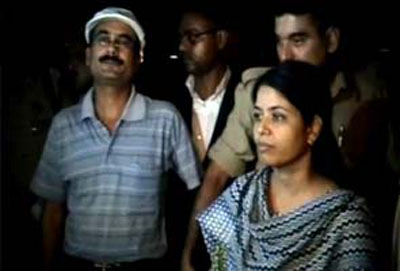

Released on bail after being jailed for two and a half years on charges of sedition, Seema Azad is editor of ‘Dastak’ magazine and organising secretary of People’s Union for Civil Liberties (PUCL). She was arrested in February 2010 in Allahabad along with her husband Vishwa Vijay.
The duo were arrested shortly after Seema wrote against Ganga Expressway Plan, a project that would have displaced many farmers and also highlighted arbitrary arrests of Muslim youth by the Special Task Force in Azamgarh. The duo were granted bail by the Allahabad High Court on 5thAugust, 2012.
SOCIAL MEDIA CENSORSHIP IN KASHMIR VALLEY
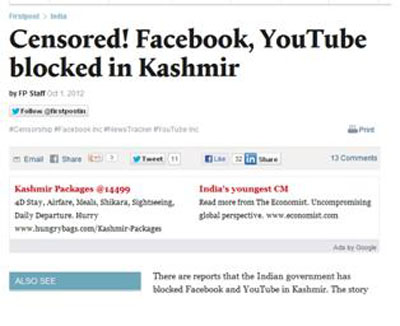 Social media networks are the first to be censored every time any kind of trouble breaks out in the Kashmir Valley. After blocking SMS services in 2010, snapping cell phone services on January 26 and August 15 every year, the Facebook and YouTube were blocked, while GPRS (general packet radio service) services were jammed. The move was effectedby the State Home Department, under section 5(2) of the Indian Telegraph Act 1885 to prevent access to the controversial “anti-Islam video”.
Social media networks are the first to be censored every time any kind of trouble breaks out in the Kashmir Valley. After blocking SMS services in 2010, snapping cell phone services on January 26 and August 15 every year, the Facebook and YouTube were blocked, while GPRS (general packet radio service) services were jammed. The move was effectedby the State Home Department, under section 5(2) of the Indian Telegraph Act 1885 to prevent access to the controversial “anti-Islam video”.SITES BLOCKED AFTER PROPAGANDA AND EXODUS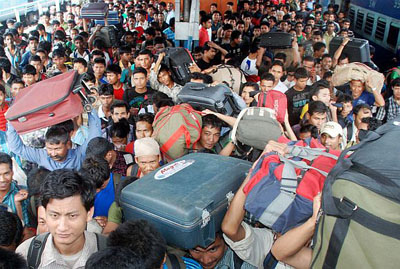

In an unprecedented move, the Union Government ordered the blocking of more than 250 websites and web pages, Twitter accounts and bulk SMS services following mass panic, propaganda and an exodus of people from the North East from Delhi, Pune and Bangalore.
The move was widely criticized asthe blockade affected sites that had disproved the false messages and the online propaganda. There was no time-limit for the block, nor were any mechanisms in place to review the blocks.
ARRESTS OVER FACEBOOK POSTS
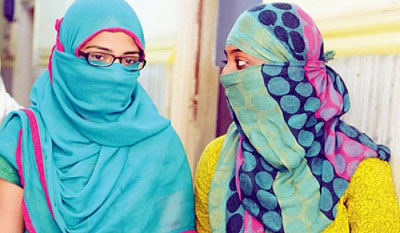 On November 19, 2012, SHAHEEN DHADA posted a critical comment on the bandh observed in the wake of the death of Shiv Sena leader Bal Thackeray on her Facebook page. Her friend RENU SRINIVASAN, immediately ‘liked’ the post.
On November 19, 2012, SHAHEEN DHADA posted a critical comment on the bandh observed in the wake of the death of Shiv Sena leader Bal Thackeray on her Facebook page. Her friend RENU SRINIVASAN, immediately ‘liked’ the post.Within hours, a mob ransacked an orthopaedic hospital belonging to Shaheen’s uncle and both Shaheen and Renu were arrested by police in Palghar, Maharashtra. The arrests, under the draconian Sec 66 (a) of the Information Technology Act, 2000, drew widespread condemnation and, amidst demands for the repeal of the section, the Union government was forced to seek the dropping of charges against the girls and issue guidelines for senior police officers to investigate cases under this section.
ASEEM TRIVEDI,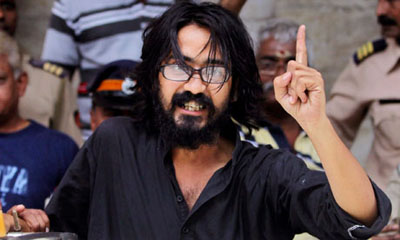

a young cartoonist from Kanpur, was arrested in September 2012, for his caroons against corruption on charges of sedition, disrespect to national honour and for sending offensive messages under Section 66(a) of the Information Technology Act, 2000. After a high-decibel campaign, the Maharashtra government decided to drop sedition charges against him but other charges are still pending.
ONLINE SURVEILLANCE
 Surveillance has increased manifold in 2012. A barrage of requests by intelligence agencies for tapping telephones, coupled with changes in telecom regulations to provide real-time data of the locations of mobile phone users is the shape of things to come.
Surveillance has increased manifold in 2012. A barrage of requests by intelligence agencies for tapping telephones, coupled with changes in telecom regulations to provide real-time data of the locations of mobile phone users is the shape of things to come.Already, the number of telephones and email accounts that are officially monitored are in the range of 10000, news reports say.
CENSORSHIP OF FILM, THEATRE, ART, LITERATURE…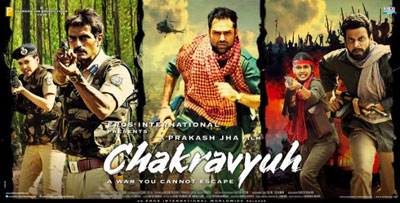

Censorship of film dialogues, titles and lyrics, film artists and performers from across the border and theatre performances continued unabated. political parties, business houses and vigilante groups had a field day protesting the use of the word ‘Bata’ in a song in the Hindi film Chakrayuvh: a documentary screening was stalled in Kashmir: Congress (I) members protested the screening of ‘Midnight’s Children’ in Kerala; the Brihanmumbai Municipal Corporation protested the staging of the Marathi version of Vagina Monologues in Mumbai and members of the Maharashtra NavnirmanSena protested the inclusion of acclaimed artists RunaLaila from Bangladesh and AbidaParveen from Pakistan in a television programme.
Subscribe To The Newsletter






